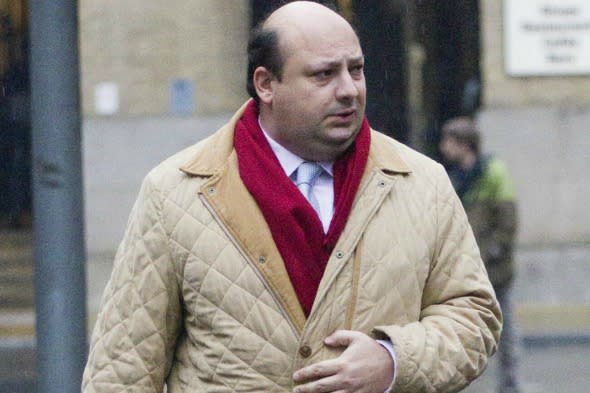£766 million fraudster will repay just £3.25 million

Achilleas Kallakis, the 46-year-old nephew of a Greek shipping magnate, from Chelsea, teamed up with a forger to run a £766 million property investment scam. He spent tens of millions of pounds living the high life: buying a £27 million private jet, a super-yacht in Monaco, a fleet of expensive cars, an artwork collection, a villa in Mykonos and a house in Chelsea. He has already been jailed for eleven years for his part in the scam, but a court has just ruled on how much he should be forced to repay. They have decided that out of the £766 million he will pay back just £3.25 million.
The scam
The Daily Mail reported that between 2003 and 2008, Kallakis used forged documents to persuade the Bank of Scotland and the Allied Irish Bank to lend him £766 million to buy 16 prestigious properties. He bought up landmarks that included the Daily Telegraph building in Buckingham Palace Road and a 23-story building in Vauxhall. He also bought expensive properties in Mayfair and Knightsbridge. And he bought an old passenger ferry which they planned to convert into a super-yacht.
The two men dipped heavily into the money too, and used it to fund a champagne lifestyle. Kallakis was well-known at the high-stakes poker tables, which is where he earned the nickname of The Don.
Article continues below

The order
When the scam collapsed, even after the buildings were sold off to recoup their losses, the banks were out of pocket to the tune of £60 million. However, the order isn't designed to ensure the victims don't lose out - but that the criminals don't benefit. It means that they were never going to try to get the full £60 million back.
The court went through the process of establishing the value that Kallakis had gained from his criminal activities, and the amount that they could recover, and settled on demanding he repay £3.25 million.
City AM reported that Mark Thompson, head of the SFO's proceeds of crime division, was pleased with the result, saying: "The SFO is committed to ensuring that fraudsters do not retain the benefit of their crimes. Following a lengthy and challenging confiscation investigation by the proceeds of crime division, the court has made a substantial order against Mr Kallakis. We will take steps to make sure the order is satisfied within the period set by the court but if he does not pay, he faces a further lengthy term of imprisonment."
%VIRTUAL-ArticleSidebar-crime-stories%
Will he pay?
There will be those who consider £3.25 million a drop in the ocean compared to the damage that was done and the losses incurred by the banks.
And they won't get much consolation from the fact that a report earlier this year found that an unacceptable number of criminals were weighing up the attractions of handing over the cash against the extra jail time, and choosing jail instead.
Margaret Hodge, Chair of the Committee of Public Accounts, said: "Crime should not pay, but we found too many criminals who are subject to an order to confiscate the proceeds of crime choosing to spend extra time in prison rather than paying up. £490 million is owed by criminals who have served or are serving more time in prison for non-payment. This suggests these sentences provide little deterrence and that the sanctions are not working and need toughening up."
But what do you think? Could more be done to get the money back?
Scamwatch on AOL Money
Scamwatch: "crash for cash" fraud
Scamwatch: "Peter Pan" virus fraud
Scamwatch: latest phone fraud



